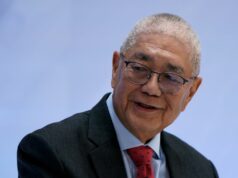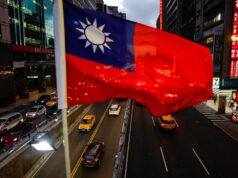DoF to continue pushing tax, retail reforms in next Congress
THE Department of Finance (DoF) said the government’s legislative priorities in the next Congress include the remaining packages of the tax system overhaul and measures reforming the foreign investment regime and retail industry, as well as amendments to the Public Service Act.
Speaking to incoming lower house members of the 18th Congress, Finance Secretary Carlos G. Dominguez III said the DoF is reorganizing its personnel and assigning directors and staff to engage full-time with legislators on a weekly basis.
“Together, we can ensure the sustainability of the high and inclusive economic growth rate we enjoy today,” Mr. Dominguez said Tuesday during a forum.
At the 18th Congress, which opens on July 22, Mr. Dominguez said it will seek to pass the remaining tranches of its comprehensive tax reform program (CTRP), which were not passed by the previous Congress.
They include measures reducing corporate income tax, rationalizing fiscal incentives, reforming the property valuation system, and increasing the government’s share of mining revenue. The DoF also wants a “fair” general amnesty law that covers relaxation of the deposit secrecy law and the automatic exchange of information with foreign tax authorities.
“Completing this (tax) reform will further secure our fiscal stability and help fulfill our shared goal of a decent and comfortable life for all law-abiding Filipinos,” Mr. Dominguez said.
The government is pushing for comprehensive tax reform to simplify the regime and generate more revenue to support its infrastructure program and expand social services.
Signed into law in December 2017, the Tax Reform for Acceleration and Inclusion (TRAIN) Act — the first package — imposed excise taxes on certain commodities and updated income tax brackets which raised take-home pay for many taxpayers.
Meanwhile, package 1B or the Tax Amnesty Act was passed on Feb. 14, providing relief for delinquent accounts up to 2017. The President subsequently vetoed the law.
The economic program for legislation has been cited by the National Economic and Development Authority (NEDA) as key policy reforms that will help improve the investment climate. However, these measures failed to pass during the 17th Congress.
In particular, modifications to the Foreign Investments Act of 1991 sought to reduce the threshold for foreigners investing $100,000 in small to medium enterprises to 15 direct employees from 50 and to allow other laws to govern foreign nationals practicing their profession in the Philippines.
Meanwhile, the bills amending the Retail Trade Liberalization Act were positioned to eliminate barriers to foreign investment by setting minimum paid-up capital at $200,000 and scrapping the minimum investment requirement of $830,000 per store.
On the other hand, amendments to the 82-year-old Public Service Act sought to lift foreign ownership limits in certain sectors.
Mr. Dominguez also thanked the outgoing 17th Congress for passing several “game-changing” laws such as the TRAIN Law, the Universal Health Care program, a new sin tax reform law as well as the rice tariffication law.
“Disciplined management brought us to where we are now. We can secure a progressive and stable future if we work together at this critical juncture,” he said. “In the service of these shared goals, we are always ready to support your legislative work with both data and briefings.” — Karl Angelo N. Vidal



